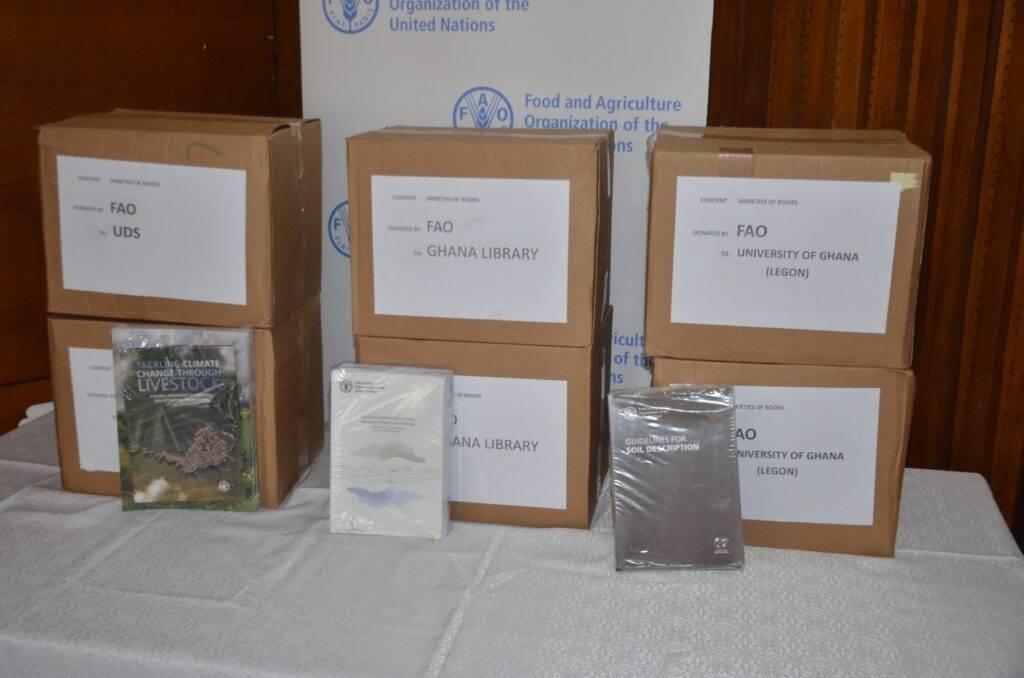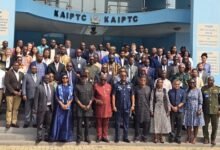FAO donates over 8000 agric books to 3 institutions

The Food and Agriculture Organisation (FAO) of the United Nations has donated agriculture based books to three institutions to enhance the study of the discipline in the country.
The institutions are the University of Ghana, the University for Development Studies and the Ghana Library Authority.

Over 8,000 publications span wide spectrum of agriculture including biodiversity, African agricultural statistics, food processing, forests and forestry, gender in agriculture, climate change amongst others.
Without putting a cost to the publications, the country representative of FAO, Dr Yasmi Yurdi, at a presentation ceremony in Accra on Friday said the donation was the biggest the UN agency had ever done in the country.
“Within these pages lie the potential to empower students and researchers, to ignite innovation and progress, and to strengthen partnerships in the very areas where FAO operates.
“The wealth of knowledge contained in these publications will serve as a guiding light, illuminating pathways to a sustainable future for both present and future generations,” he stated.
Commending Ghana for its sterling role in the development of the FAO in particular and the UN in general, Dr Yurdi said the materials are also accessible online for the convenience of students and the general public.
Knowledge sharing according to Dr Yurdi, who is also the Deputy Regional Representative of the FAO, is a beacon that guides the world towards the attainment of the Sustainable Development Goals.
Data and analytics gleaned from the publications, he believed would fuel the world’s journey towards a more equitable, sustainable and prosperous world as he underscored the potential of the African youth.
He entreated students to make use of the books for knowledge is a gift that multiplies with every share.
“These publications are not merely ink on paper; they are seeds of wisdom when nurtured, have the potential to blossom into greatness.”
Receiving the publications on behalf of the institutions, their representatives were grateful for the gesture and said the books would enrich the knowledge of not only the students but researchers alike.
BY JULIUS YAO PETETSI






